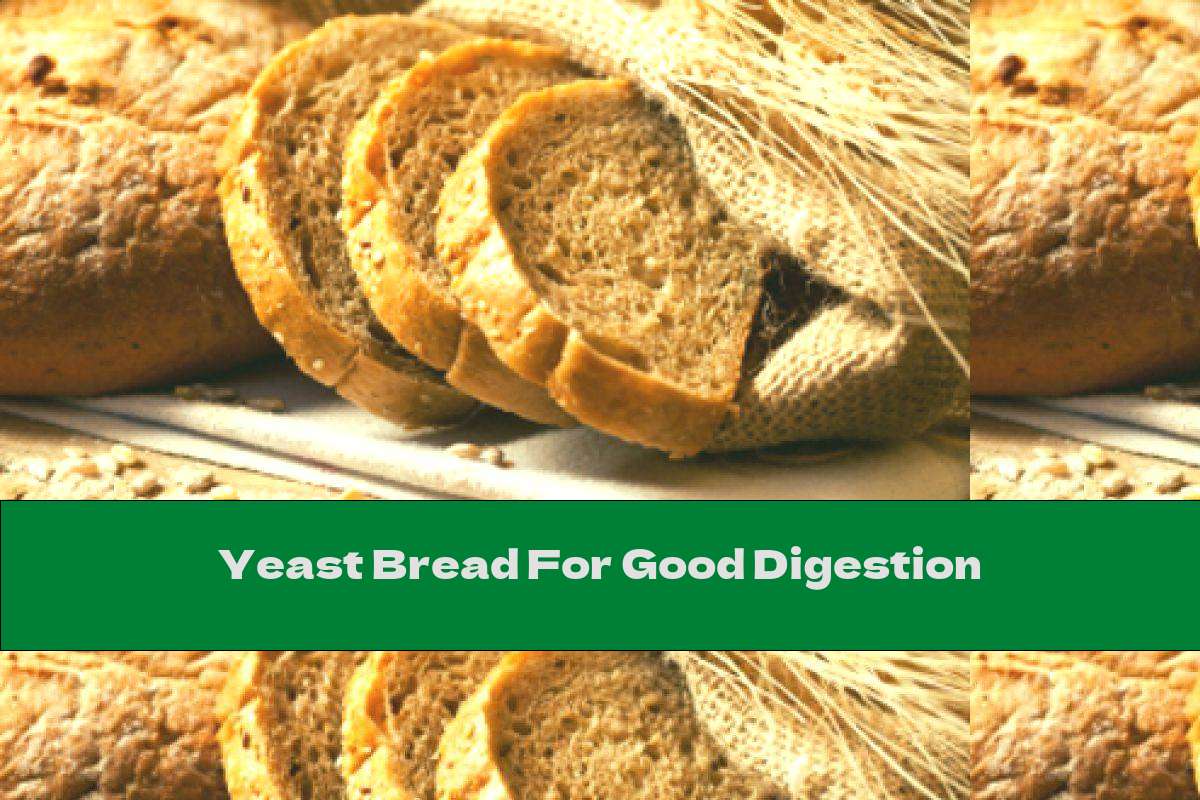Yeast Bread For Good Digestion
 Author: Marko Balašević
Time for reading: ~1
minutes
Last Updated:
August 08, 2022
Author: Marko Balašević
Time for reading: ~1
minutes
Last Updated:
August 08, 2022

Lactobacillus bacteria ferment the mixture of flour and water and cause the release of lactic acid.
The bacteria in sourdough support the intestinal flora and facilitate digestion just like all other products obtained by fermentation. The fermentation of lactic acid not only helps the endurance of the food without the need to add preservatives, but also makes it even more nutritious. Bacteria and yeast in yeast break down starch, making it much easier to digest.
Although it tastes different from ordinary bread, it is worth getting used to for a number of reasons. Yeast bread has much higher concentrations of the important vitamin B 1 , which is significantly reduced when processing and baking other types of pasta. By hydrolysis - dissolving phytates from phytase, large amounts of minerals such as zinc, iron, magnesium, copper and phosphorus are released in the yeast, which are in much smaller quantities in conventional types of bread.
Yeast bread has been shown to lower insulin response and improve glucose tolerance. In addition, the lactic acid in it inhibits the growth and development of mold and mildew, which makes it virtually unfit for decay.
Because the leavening of sourdough dough is much slower, lactic acid has much more time to create an ideal pH (acidity) for phytase activity, which breaks down about 62% of phytic acid, while in plain dough yeast does not allow more than 38 % of its degradation. The more it decomposes during fermentation, the more useful substances become available to the human body in the dough.
Rye flour is most suitable for this type of bread, because it has the most pronounced phytase activity - the breakdown of phytates, complex sugars and starch.
Although many sourdough recipes on the Internet contain fresh milk, which is added at some stage in the preparation of bread, this action is undesirable because it strongly suppresses fermentation. Water can always replace milk in these recipes.
100 g of sourdough bread contains less than 2 g of fat and more than 12 g of protein, 512 mg of potassium and 2.4 g of dietary fiber.
Related Articles
- The Importance of Yeast as a Raising Agent in Nutrition: Benefits and Recipes
- Yeast in Nutrition: Benefits, Recipes, and More
- The Power of Yeast: Nutrition Benefits and Uses
- The Ultimate Guide to Yeast in Nutrition: Benefits, Baking, and Fermentation
- The Role of Yeast in Nutrition: Benefits and Recipes